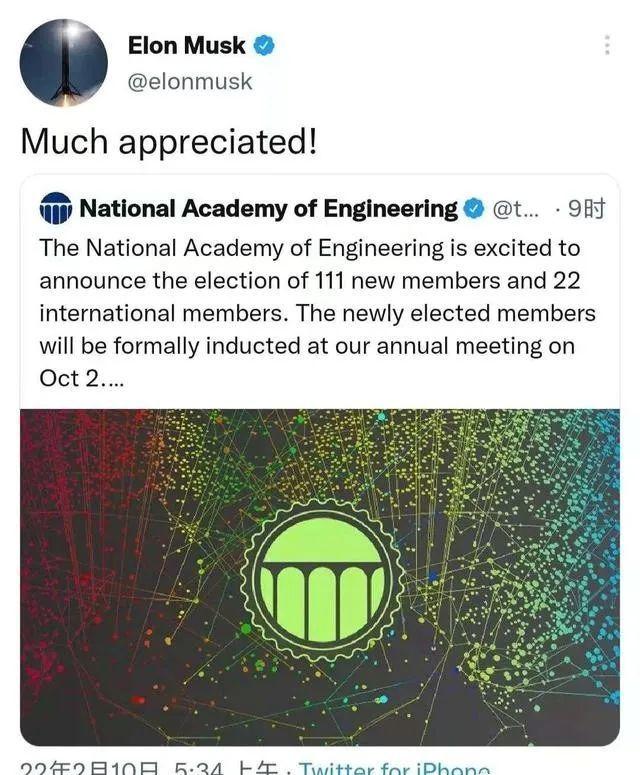On February 10, Beijing time, the website of the National Academy of Engineering released a list of additional academicians, of which Tesla and Space X CEO Musk were selected.

However, on the same day, according to a complaint filed by the American Committee of Responsible Medical Physicians (PCRM), Musk's brain chip company Neuralink caused terrible harm to the experimental monkeys tested. The complaint, filed with the U.S. Department of Agriculture (USDA), relates to the Neuralink monkey experiment conducted at the University of California, Davis from 2017 to 2020.
PCRM accused Neuralink and its host university of violating the U.S. Federal Animal Welfare Act nine times, noting that "the implantation of highly invasive electrode devices in the head of monkeys without adequate care during the experiment left many animals experiencing extreme suffering." ”
According to the Washington Post, the Neuralink electrode device produced repeated infections in the process of implantation in animals, greatly impairing their health and the integrity of their research.
PCRM also sued the University of California, Davis, for more photos, videos and information about the monkeys. They said the only publicly available material of this type, curated in large quantities by Musk, showed a healthy-looking monkey playing a video game, supposedly with its thoughts. But the university has denied any wrongdoing.
In addition to exposing clips of experimental monkeys playing games, Musk has been silent about the results of the animal Neuralink experiment. Last December, he hinted that human trials would begin this year, and even released a job posting last month seeking clinical trial directors.
However, the project has also experienced delays before: Musk also announced in March 2021 that human trials would begin in a few months, though his experiments have yet to surpass pigs and non-human primates.
While it's unclear whether the pain experienced by the monkeys was related to the delay in entering the human trial phase, the level of trauma mentioned in the complaint suggests that Musk and his researchers may have to make some improvements to the design before experimenting on humans.
One of the monkeys described in the complaint was reportedly found to have lost limbs "possibly due to self-harm or other unspecified trauma" and was later killed during "end-of-life surgery." Another monkey had a hole drilled in its skull to implant Neuralink electrodes directly into its brain, but a "bloody skin infection" developed and was then executed. A third monkey appeared to have survived implantation with electrodes, but developed "vomiting, nausea, and shortness of breath." A few days later, it was said to have "collapsed due to extreme exhaustion" and eventually died, suggesting it suffered from cerebral hemorrhage.
The primates described in the report were just three of the 15 subjects, and a total of 23 experimental monkeys died or were euthanized during the three-year period covered by the complaint.
Musk's original idea of developing Neuralink was to use it as an implant to boost the brain to help humans keep pace with the development of artificial intelligence. He has warned that otherwise we will be reduced to "house cats" ruled by computers.
However, he recently changed his mouth, claiming that its main use will be to help paralyzed people and other brain injured people improve their quality of life.
Musk hasn't stopped bragging about how easily Neuralink can be implanted into users' brains, insisting it can be done in an hour without the need for general anesthesia. He also describes a future in which Neuralink implant centers are as ubiquitous as the ear piercing stores in American malls.